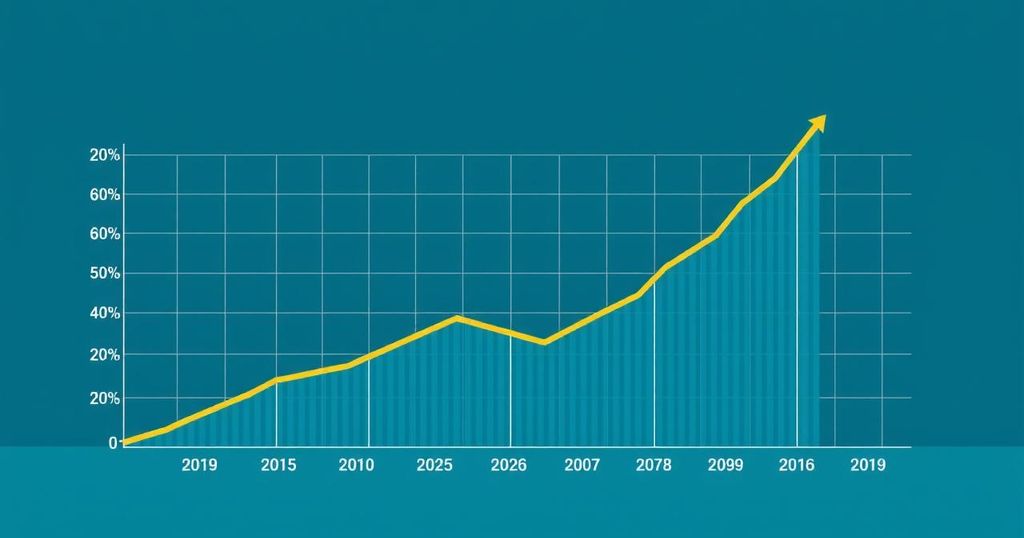Egypt’s inflation rate fell to 12.8% in February, down from 24% in January. The decline is attributed to the base effect and a drop in vegetable prices, with monthly increases slowing. Past inflation was driven by rising fuel prices and significant increases in essential goods like bread.
In February, Egypt’s annual urban consumer price inflation sharply declined to 12.8%, a significant reduction from 24% in January, as reported by the Central Agency for Public Mobilization and Statistics. This notable decrease is attributed to the base effect, indicating that prior extraordinary price surges are no longer impacting the current inflation rate.
On a monthly scale, consumer prices experienced a 1.4% increase in February, which is a slight decrease from the 1.5% rise recorded in January. This marks the fourth occasion in the past seven months that inflation has decelerated after a period of consistent acceleration that commenced in August 2023.
The inflationary pressures witnessed in the previous year were primarily driven by escalating fuel prices, increased public transportation fares, and a significant 300% rise in the cost of subsidized bread in May, representing the first such increase in over three decades. The February inflation slowdown was largely due to an 8.2% decline in vegetable prices, with costs for water, electricity, and gas remaining stable, among other contributory factors.
In conclusion, Egypt’s consumer price inflation has significantly decreased, reflecting a reduction from 24% to 12.8% in February due to the base effect and a drop in vegetable prices. Monthly price growth has also slowed, indicating a trend towards stabilization in the inflation rate. However, past inflationary pressures reflected underlying issues such as rising fuel costs and increases in essential goods.
Original Source: anba.com.br






